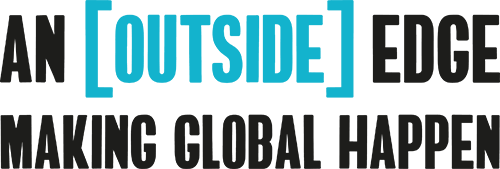Cut the geek-speak, how does this help me make money or save money?
When it comes to the IT marketplace, it’s concerning to see so many vendors put together propositions and marketing campaigns that don’t answer the basic question that most customers have on their minds.
Yes, I appreciate that there are some buyers who will take a product because it’s “cool”, that it delivers storage at 10m I/Os per second or that it goes from 0-60 in half a millisecond, however with today’s economy, the savvier buyers are the ones who match the product to the business need.
I still recall a conversation with my girlfriend back in the late '90s (who’s now my wife – it’s OK, I’m not going into dangerous waters here) who walked with me past a mobile phone store. “Unleash the power of 3G bandwidth here now” it said in the window which triggered her to remark “what’s that for then?”. When I replied with something along the lines of “oh it lets you get emails and browse the web like you do at home” she remarked “well why don’t they say that instead of talking in geek-speak?” – she had a good point.
How often do we still see vendors leading with product features rather than impacts or benefits? I’m personally a big fan of example use cases and reference selling. If one of my competitors increased their productivity by x%, found that the product had paid for itself in just 6 months or that they had attracted 500 new clients as a direct result of that purchase then I want to know how and I’d probably be asking my CIO why we hadn’t made a similar move.
Now the cynic in me is screaming that at the same time as we’re seeing products pushed on benefits, we’re still seeing too many vendors still pulling the “lowest total cost of ownership” line – yawn. Yes, that old chestnut has been pulled out way too many times by vendors trying to justify a higher purchase price than anyone else, however it’s usually that they have a gut feel that the product can bring savings but they can’t justify it – usually because they’re over-blowing it.
One of the biggest challenges for IT buyers these days is time. With tight budgets and often decreasing spend on staffing, it usually means that they don’t have time to do a ton of market research. Couple that with the ever-increasing trend of self-selection (making most of the decision making online before even talking to a sales person) and you have a situation where you have to make simple impact statements to get attention.
Instead of “Product X can lower your TCO”, how about “by implementing product X, my provisioning time has reduced from 2 days to 20 mins”. If you have the evidence you can take that even further and state how much that has saved your customer in cold, hard cash. One word of warning though, if you are going to make these bold statements, make sure you have proof – customers can spot BS a mile off and it’s also too easy to cross-reference and before you know it, your whole credibility is blown.
So why is this still happening? Well from my experience it's just simply down to organizational focus and priorities. When dealing with startups especially, I've found that the initial focus in on the product build and getting the technology delivering on its promises - as it should be. When it then comes to launching, the technical team will often take the lead in explaining how the product works and how fantastic it is - as it shouldn't be. This is where marketing advice is required - work with a team that's done this before and can extrapolate the benefits and turn them into impact statements. It's not that complex, it's just a case of the right type of approach for the job. Both the technical team and marketing team are correct - just use different tools for different jobs. Imagine if the marketing team built the product - now you know what a mess that would be!
